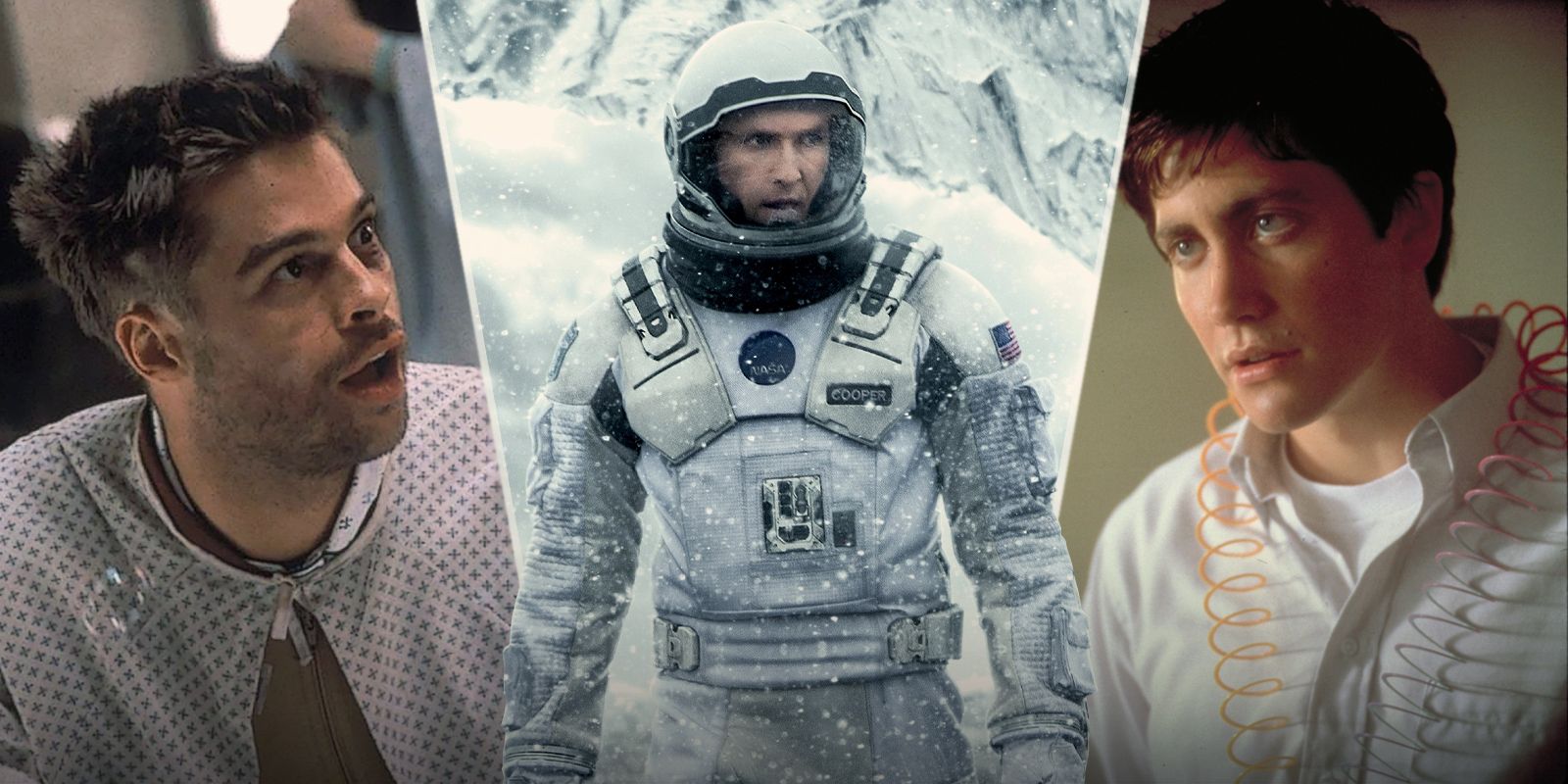I Love Sci-Fi, But These 10 Time-Travel Movies Confuse Me

Time Travel in Film: A Journey Through Confusion and Complexity
Time travel has long been a staple of science fiction, captivating audiences with its promise of exploring the past, altering the future, or even rewriting history. While many films use time travel as a narrative device to create excitement and suspense, some push the boundaries of logic, leaving viewers both fascinated and bewildered.
The Butterfly Effect: Small Changes, Big Consequences
The Butterfly Effect begins as a drama centered around four friends dealing with the aftermath of a shared trauma. When one of them, Evan (Ashton Kutcher), discovers he can travel back in time, he tries to change their fate. However, each alteration leads to unintended and often catastrophic consequences. The film's premise is simple: every small action can have significant ripple effects. Yet, the execution is anything but straightforward. The lack of clear cause-and-effect relationships makes the storyline confusing, with random outcomes that leave viewers struggling to connect the dots.
Triangle: A Never-Ending Horror Loop
Triangle takes a different approach, using time travel to craft a disturbing horror story. Jess (Melissa George), an overwhelmed mother, embarks on a boat trip that turns into a terrifying loop. As she relives the same events over and over, the film gradually reveals the nature of her torment. What starts as a mystery becomes a chilling exploration of repetition and futility. The film’s structure, with its shifting cycles and ambiguous explanations, adds to the confusion, making it difficult for viewers to grasp the full scope of the narrative.
Source Code: Eight Minutes of Chaos
Source Code revolves around a mission that lasts only eight minutes. Captain Colter Stevens (Jake Gyllenhaal) must enter the consciousness of a man who is about to die in a bomb attack. His goal is to identify the bomber and prevent the disaster. However, the film’s logic is often hard to follow, especially when it comes to how Stevens can access the mind of a dead man. The ending is particularly mind-bending, revealing layers of meaning that only become apparent after multiple viewings.
Timecrimes: A Mind-Bending Sci-Fi Thriller
Timecrimes is a low-budget sci-fi film that manages to deliver a high-concept story. It follows Hector (Karra Elejalde), a man who accidentally stumbles upon a time machine while trying to save a woman from danger. The result is a series of overlapping timelines and multiple versions of himself, each leading to increasingly bizarre and dangerous situations. The film’s clever use of causal loops and accidental time travel keeps viewers engaged, though the complexity may be overwhelming for some.
12 Monkeys: A Dystopian Puzzle
12 Monkeys combines time travel with a dystopian setting, following James Cole (Bruce Willis) as he travels back in time to find a cure for a deadly virus. The film’s central concept—closed loops—means that any actions taken in the past are already part of the timeline. This idea is challenging to grasp, and many viewers find the ending confusing or unsatisfying. Despite this, the film remains a thought-provoking exploration of fate and free will.
Predestination: A Mind-Blowing Twist
Predestination delves deep into the concept of predestination and closed loops. Agent Doe (Ethan Hawke) is tasked with stopping the Fizzle Bomber, only to discover that his own actions are part of the timeline. The film’s final reveal is nothing short of stunning, fundamentally changing the way the audience views the entire story. While confusing at times, the film’s bold approach to time travel paradoxes sets it apart from other entries in the genre.
Interstellar: Science Meets Emotion
Interstellar is a visually stunning film that explores the intersection of science and emotion. The story follows astronauts searching for a new home for humanity, navigating through wormholes and experiencing time dilation. The inclusion of a tesseract, where time is treated as a physical dimension, adds another layer of complexity. While the film’s scientific concepts are fascinating, they can be difficult to fully grasp without multiple viewings.
Donnie Darko: A Surreal Fever Dream
Donnie Darko unfolds like a surreal fever dream, blending time travel, alternate realities, and teenage angst. The film’s absurd premise involves a teenager receiving warnings from a monstrous rabbit and discovering a jet engine in his bedroom. The time travel element is subtle and often overlooked, making the film a challenging but rewarding experience for those willing to piece together its meaning.
Tenet: A Confusing but Visually Stunning Experience
Tenet is Christopher Nolan’s most complex time travel film yet. Instead of traditional time travel, the film introduces the concept of time inversion, where time moves backward. The film’s visual spectacle is impressive, but its abstract concepts and pseudoscientific elements make it difficult to follow. Even on a second viewing, many viewers struggle to make sense of the narrative.
Primer: A Dense and Challenging Narrative
Primer is one of the most realistic time travel films, focusing on the technical and scientific aspects of time manipulation. The story follows two engineers who build a time machine and use it to profit from stock trades. However, the film’s dense dialogue and complex scientific concepts make it a challenging watch. Its realism, combined with the lack of simplification, ensures that only the most dedicated viewers will fully appreciate its depth.
Post a Comment for "I Love Sci-Fi, But These 10 Time-Travel Movies Confuse Me"
Post a Comment